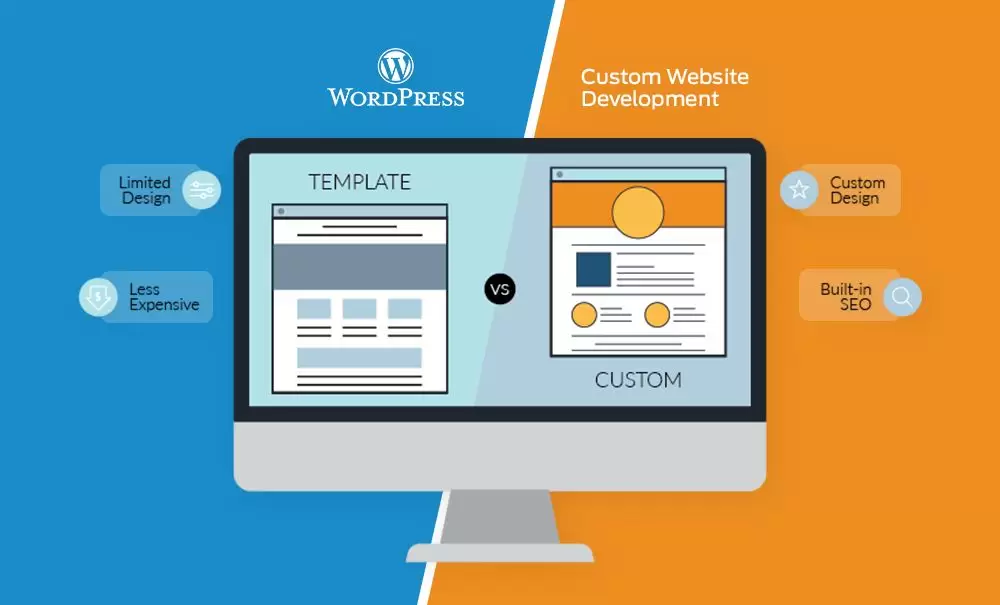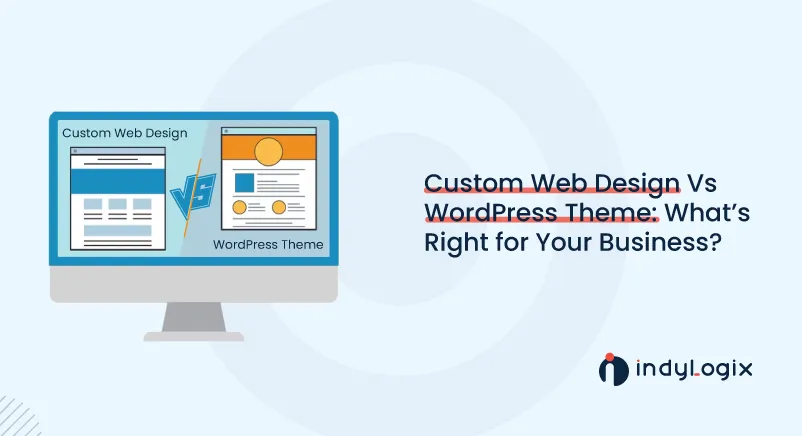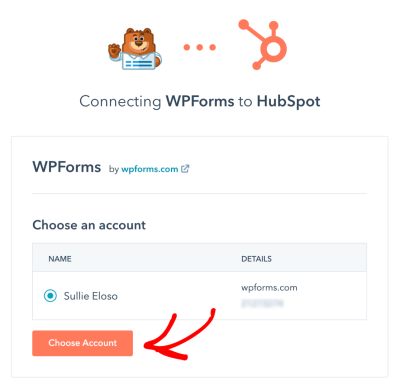When it comes to building a website, you’ve probably heard of both custom web development and WordPress. But what exactly are they, and how do they differ? In simple terms, custom web development involves creating a website from scratch tailored specifically to your needs, often using programming languages like HTML, CSS, and JavaScript. On the other hand, WordPress is a popular content management system (CMS) that provides pre-made themes and plugins, making it quick and easy to set up a website. While WordPress is user-friendly and flexible, it might not always give you the unique edge or performance you want. Let’s dive deeper into what makes each option tick and why choosing custom development might be the smarter move for your business.
Benefits of Custom Web Development for Your Business

Opting for custom web development over a platform like WordPress can feel like a big leap, but the advantages often outweigh the initial investment. Here’s why many businesses are making that choice:
- Unique Brand Identity: With custom development, your website can be built to perfectly match your brand’s personality. Instead of trying to fit into a template, you get a design that stands out and truly reflects your business ethos.
- Better Performance and Speed: Custom-coded websites are optimized for performance. They load faster and run smoother because they aren’t bogged down by unnecessary plugins or bloatware common in CMS platforms.
- Enhanced Security: Since custom websites are built from scratch, they’re less vulnerable to common WordPress threats like plugin vulnerabilities and hacking. You have full control over security measures, making your site safer for visitors.
- Scalability and Flexibility: As your business grows, so can your website. Custom development allows you to add features or functionality tailored to your evolving needs without being restricted by the limitations of a pre-built CMS.
- Unique User Experience: Custom websites can be designed with specific user journeys in mind, leading to higher engagement and conversions. You can craft intuitive navigation, personalized interactions, and seamless integrations that resonate with your audience.
- Full Ownership and Control: When you go custom, you own every line of code. This means you’re not dependent on third-party plugins or themes, giving you full control over updates, maintenance, and future enhancements.
While custom web development might require a higher initial investment and longer development time, the payoff is a website that’s truly yours—optimized, secure, and aligned with your business goals. It’s about creating a digital presence that not only looks great but also performs exceptionally, giving you a competitive edge in the crowded online marketplace.
3. Limitations of Using WordPress for Website Creation

While WordPress is undoubtedly one of the most popular platforms for building websites—thanks to its user-friendly interface and vast ecosystem—it’s not without its limitations. Understanding these constraints can help you decide whether WordPress is the right fit for your specific needs or if you should consider custom development instead.
First off, performance issues can crop up, especially as your website grows. WordPress sites often rely on numerous plugins to add features, and too many of these can slow down your site. This isn’t just an inconvenience—it can impact user experience and SEO rankings. If your website needs to handle high traffic or complex functionalities, WordPress might struggle without significant optimization.
Another point to consider is security. Because WordPress is so widespread, it’s a common target for hackers. While you can improve security with plugins and regular updates, vulnerabilities may still exist, especially if you’re not diligent about maintaining your site. Custom websites, built from scratch, can be more secure because they have fewer attack vectors and more control over security measures.
Then there’s flexibility and customization limitations. While WordPress themes and plugins are plentiful, they might not always do exactly what you envision. Customizing them can be tricky, and sometimes you end up hacking away at plugins or themes, which can create conflicts or make updates difficult. If your website requires highly unique features or a tailored user experience, WordPress might force you into compromises or complex workarounds.
Additionally, scalability can be a concern. Small to medium sites generally work well on WordPress, but if you’re planning a large-scale platform—think enterprise-level applications or highly specialized portals—you might find WordPress’s architecture limiting. Custom development allows for building scalable, efficient solutions designed precisely for your future growth.
Finally, long-term maintenance and updates can become burdensome. Keeping plugins, themes, and core software updated is essential, but it can be time-consuming and may cause compatibility issues. With a custom-built site, you have direct control over the codebase, making updates and maintenance more streamlined and tailored to your needs.
In essence, while WordPress is a fantastic choice for many projects, it’s important to recognize its boundaries. If your website demands high performance, security, unique features, scalability, or long-term flexibility, investing in custom web development might be the smarter, more sustainable route.
4. Key Factors to Consider When Choosing Between Custom Development and WordPress
Deciding whether to go with custom web development or stick with WordPress isn’t always straightforward. There are several crucial factors to weigh that can help you make an informed decision aligned with your goals, budget, and timeline.
1. Project Complexity and Customization Needs
- If your website requires highly specific features, unique workflows, or a distinctive design, custom development offers the flexibility to create exactly what you envision.
- For simpler sites like blogs, small business pages, or informational sites, WordPress can be a quick and cost-effective solution.
2. Budget and Resources
- WordPress typically has a lower upfront cost because of its ready-made themes and plugins. It’s great if you’re working with a limited budget and need to launch quickly.
- Custom development can be more expensive initially but might save money long-term by reducing the need for constant plugin updates, security patches, and workarounds.
3. Timeline for Launch
- If speed is a priority, WordPress allows for rapid deployment. You can have a basic site up and running within days.
- Custom solutions take more time to develop but can be built to exact specifications, avoiding the compromises often necessary with pre-made themes or plugins.
4. Long-term Maintenance and Scalability
- Consider whether you have the technical expertise or resources to maintain a WordPress site—regular updates, plugin management, security patches, etc.
- Custom sites, while initially more complex, can be designed for easier updates and scalability, especially if you plan to expand functionality over time.
5. Security and Performance
- Custom development allows for tighter security measures tailored to your needs, as you control every aspect of the code.
- WordPress security depends heavily on third-party plugins and timely updates. Performance can also be optimized more effectively in a custom build.
6. Future Growth and Flexibility
- If you anticipate significant growth, a custom solution might be more adaptable to evolving business requirements and technology trends.
- WordPress sites can be scaled, but they often require additional plugins and customizations, which can become cumbersome over time.
Ultimately, the decision hinges on balancing your immediate needs with your long-term vision. If you want a fast, budget-friendly site with standard features, WordPress is a solid choice. But if you’re aiming for a highly tailored, scalable, and secure platform that can grow with your business, investing in custom web development could be the best decision you make for your website’s future.
5. Cost and Timeline Differences Between Custom Development and WordPress
When it comes to building a website, one of the biggest questions is often, “How much is this going to cost, and how long will it take?” It’s a common concern, and the answer can vary quite a bit depending on whether you choose a custom web development route or go with a platform like WordPress.
Let’s start with WordPress. It’s known for being budget-friendly and quick to deploy. With a lot of themes and plugins readily available, you can have a basic site up and running in just a few days or weeks—sometimes even faster. Plus, many WordPress themes are free or inexpensive, making it an attractive option for small businesses or personal projects on a tight budget.
However, while WordPress can be cheap upfront, costs can add up over time. Customizations often require premium plugins, and if your website needs specific features, you might find yourself paying for custom development or hiring a developer to tweak things beyond what plugins can do. Additionally, maintaining a WordPress site—keeping plugins updated, security patches, backups—requires ongoing effort and sometimes extra costs.
On the flip side, custom web development typically involves a higher initial investment—think of it as building a house from scratch versus buying a pre-made one. The timeline is longer because developers are creating your website from the ground up, tailoring it exactly to your needs. This process can take anywhere from several weeks to a few months, depending on complexity.
In summary:
- WordPress: Lower upfront cost, faster deployment, but potential ongoing expenses for plugins and maintenance.
- Custom Development: Higher initial cost, longer timeline, but often more predictable and tailored expenses in the long run.
Choosing between the two really depends on your budget, your timeline, and how much customization you need. If you want a quick, budget-friendly site that covers basic needs, WordPress might be the way to go. But if you’re aiming for a highly unique, scalable, and long-term solution, investing in custom development can save you money and headaches down the road.
6. Scalability and Flexibility of Custom Web Solutions
One of the biggest advantages of opting for custom web development is its incredible scalability and flexibility. Think of your website as a growing business—what works today might not be enough tomorrow. Custom solutions are designed with this growth in mind, giving you the ability to evolve without starting from scratch again.
Unlike WordPress, which relies heavily on themes and plugins—many of which can become cumbersome or conflict with each other—custom websites are built with your specific needs at the core. Developers craft your site’s architecture to accommodate future features, increased traffic, or expanding content effortlessly.
Here’s what makes custom web solutions so flexible:
- Tailored Architecture: Your site’s foundation is built exactly how you need it, making adding new features or integrations smoother.
- Optimized Performance: Since your site isn’t bogged down by unnecessary plugins, it can handle higher traffic volumes without slowing down.
- Custom Features: Need a unique booking system, complex data processing, or specific user workflows? These can be seamlessly integrated into a custom build.
- Design Freedom: Unlike WordPress themes that can limit your creativity, custom design offers complete control over look and feel, ensuring your brand stands out.
Moreover, as your business grows or pivots, your website can adapt accordingly. Whether it’s adding e-commerce capabilities, integrating with CRM systems, or implementing advanced analytics, a custom website is built to scale with your ambitions.
Of course, this flexibility comes with a bit more planning upfront. You’ll want to work closely with developers to outline your future goals. But the payoff is a website that can evolve seamlessly, saving you from costly overhauls or migrations down the line.
In essence, choosing a custom web solution sets the stage for sustainable growth. It ensures your website isn’t just a static digital brochure but a dynamic tool that adapts and scales as your business does.
7. Security Aspects of Custom Web Development Versus WordPress
When it comes to website security, it’s a topic that should never be taken lightly. After all, your website is often the digital storefront for your business, and a security breach can have serious consequences. So, how do custom web development and WordPress stack up in this department?
WordPress Security Challenges
WordPress is incredibly popular—powering over 40% of all websites on the internet. That popularity, however, makes it a prime target for hackers. Why? Because there are countless plugins, themes, and third-party extensions, many of which can have vulnerabilities if not properly maintained. Additionally, since WordPress core is open-source, malicious actors often scrutinize its code to find weaknesses.
Common security issues with WordPress include:
- Outdated Plugins and Themes: Hackers exploit known vulnerabilities in outdated components.
- Weak Passwords & User Roles: Poor password practices can give attackers easy access.
- Shared Hosting Environments: Many WordPress sites are hosted on shared servers, increasing risk if other sites are compromised.
That said, there are robust security plugins and best practices to mitigate these risks, but they require constant vigilance and updates.
Security in Custom Web Development
On the flip side, custom web development offers a tailored security approach. When you work with developers to craft a website from scratch, security measures are built into the foundation, not just added on later. This includes:
- Minimal Attack Surface: A custom site only includes the features you need, reducing potential vulnerabilities.
- Secure Coding Practices: Developers adhere to best practices, such as input validation and proper data handling, to prevent common exploits.
- Custom Authentication & Authorization: You can implement advanced security protocols suited to your needs.
- Regular Security Audits: Ongoing assessments can identify and fix vulnerabilities before they become problems.
While building a secure site from scratch might seem more complex initially, it ultimately provides a more resilient environment. Plus, since you’re not relying on third-party plugins or themes, the risk of outdated or vulnerable components diminishes significantly.
In summary, if security is your top priority—especially for sensitive or e-commerce websites—custom web development can give you peace of mind with a tailored, hardened security posture. WordPress can be secure too, but it requires diligent maintenance and updates to stay ahead of threats.
8. Conclusion: Making the Right Choice for Your Website Needs
Deciding between custom web development and WordPress isn’t always straightforward. It boils down to understanding your specific needs, budget, technical expertise, and long-term goals.
Here’s a quick rundown to help you decide:
| Feature | WordPress | Custom Web Development |
|---|---|---|
| Ease of Use | Great for beginners; lots of themes and plugins | Requires technical knowledge or developer support |
| Cost | Lower initial investment | Higher upfront costs, but potentially more cost-effective long-term |
| Flexibility & Customization | Limited by themes and plugins | Unlimited customization tailored to your needs |
| Security | Dependent on plugins and maintenance | Built-in security tailored to your site’s specifics |
| Scalability | Good for small to medium sites | Excellent for growing businesses with complex requirements |
In the end, if you want a quick-to-launch website with a lot of ready-made features, WordPress might be the way to go. But if your vision involves a highly customized experience, robust security, and scalability, investing in custom web development could be the best decision.
Remember, your website is an extension of your brand and a critical part of your digital strategy. Making the right choice now can save you headaches down the line and ensure your online presence is secure, efficient, and aligned with your goals. So, weigh your options carefully, consult with experienced developers, and choose the path that best supports your vision for the future.


